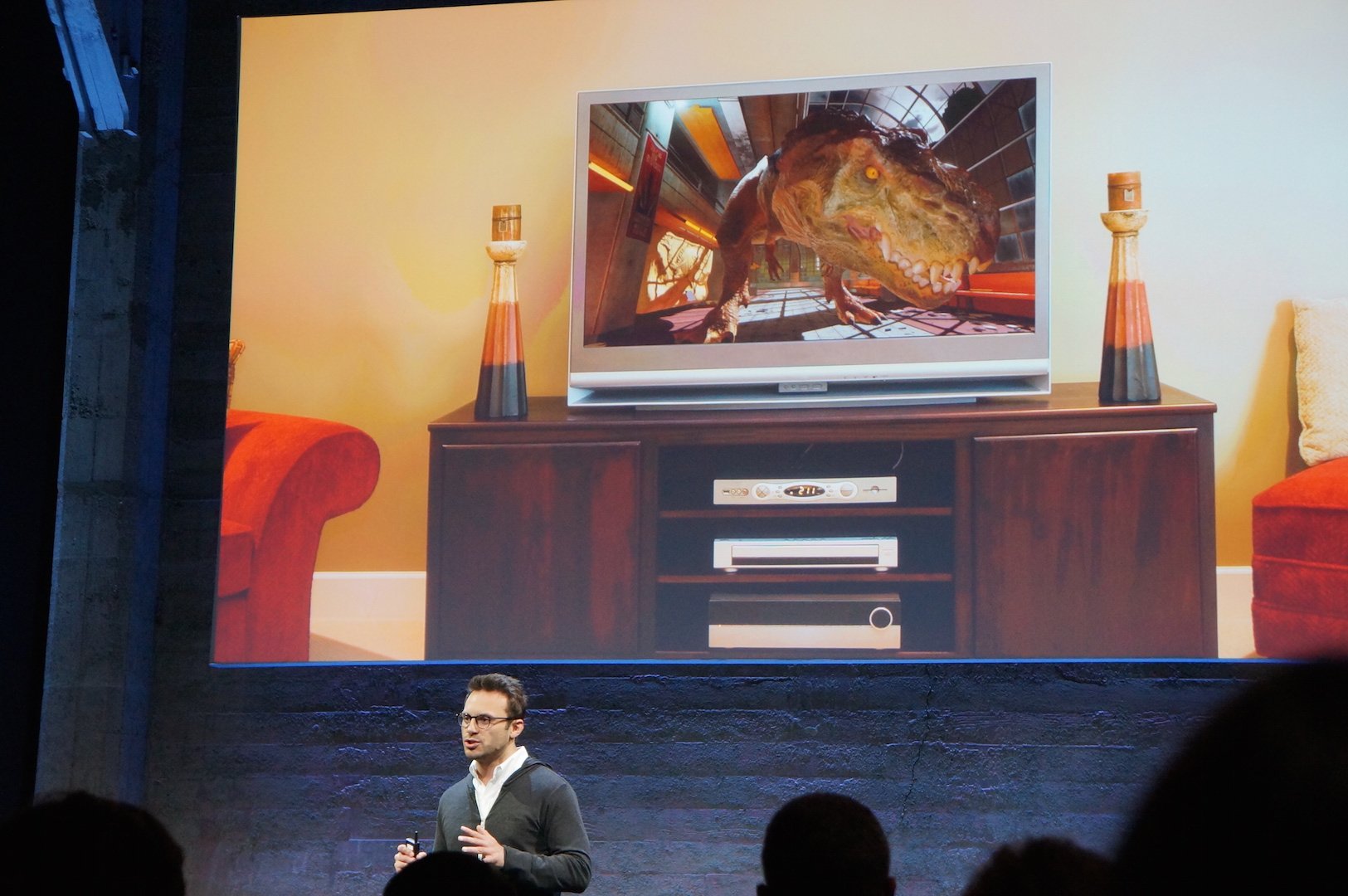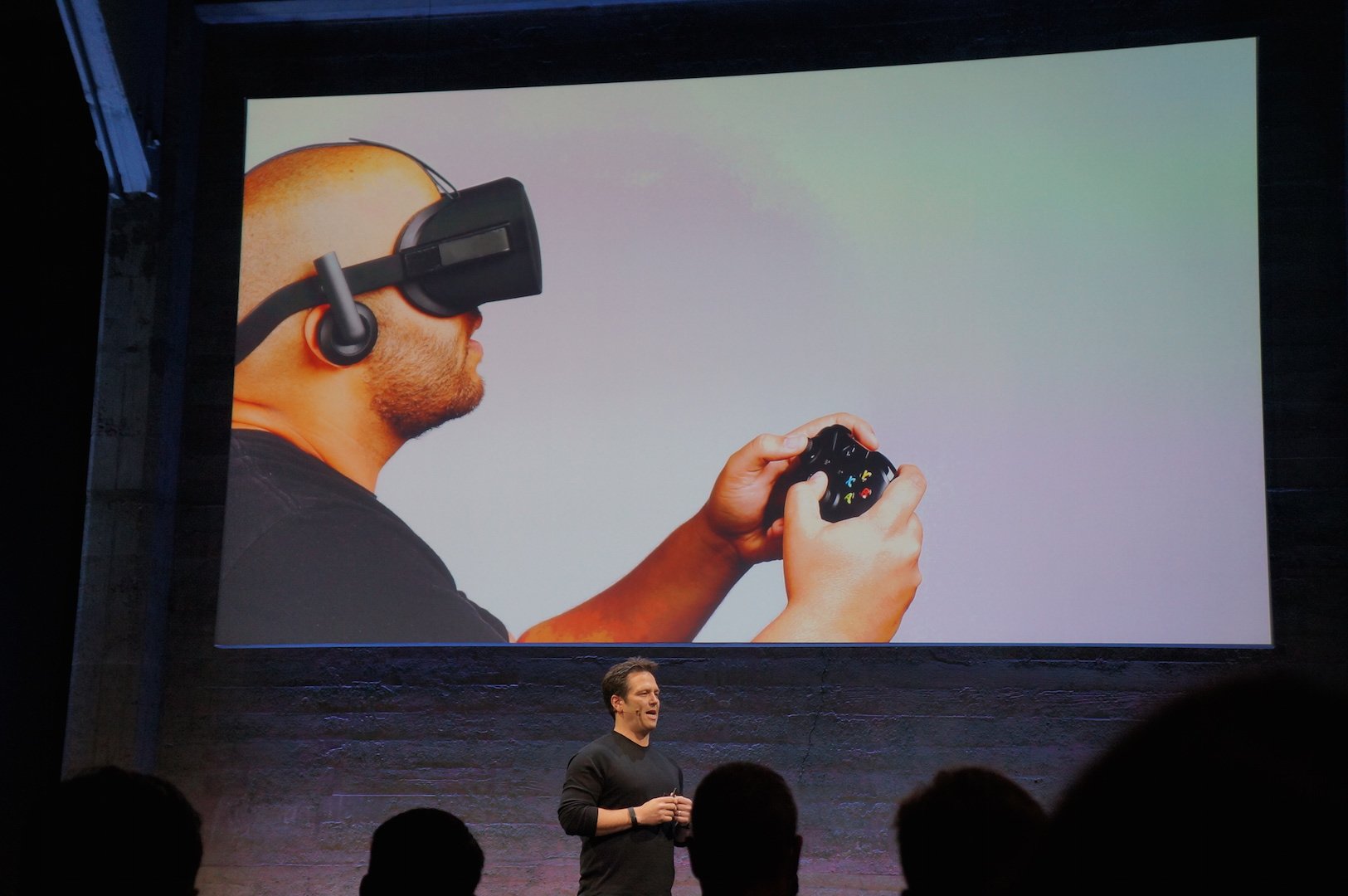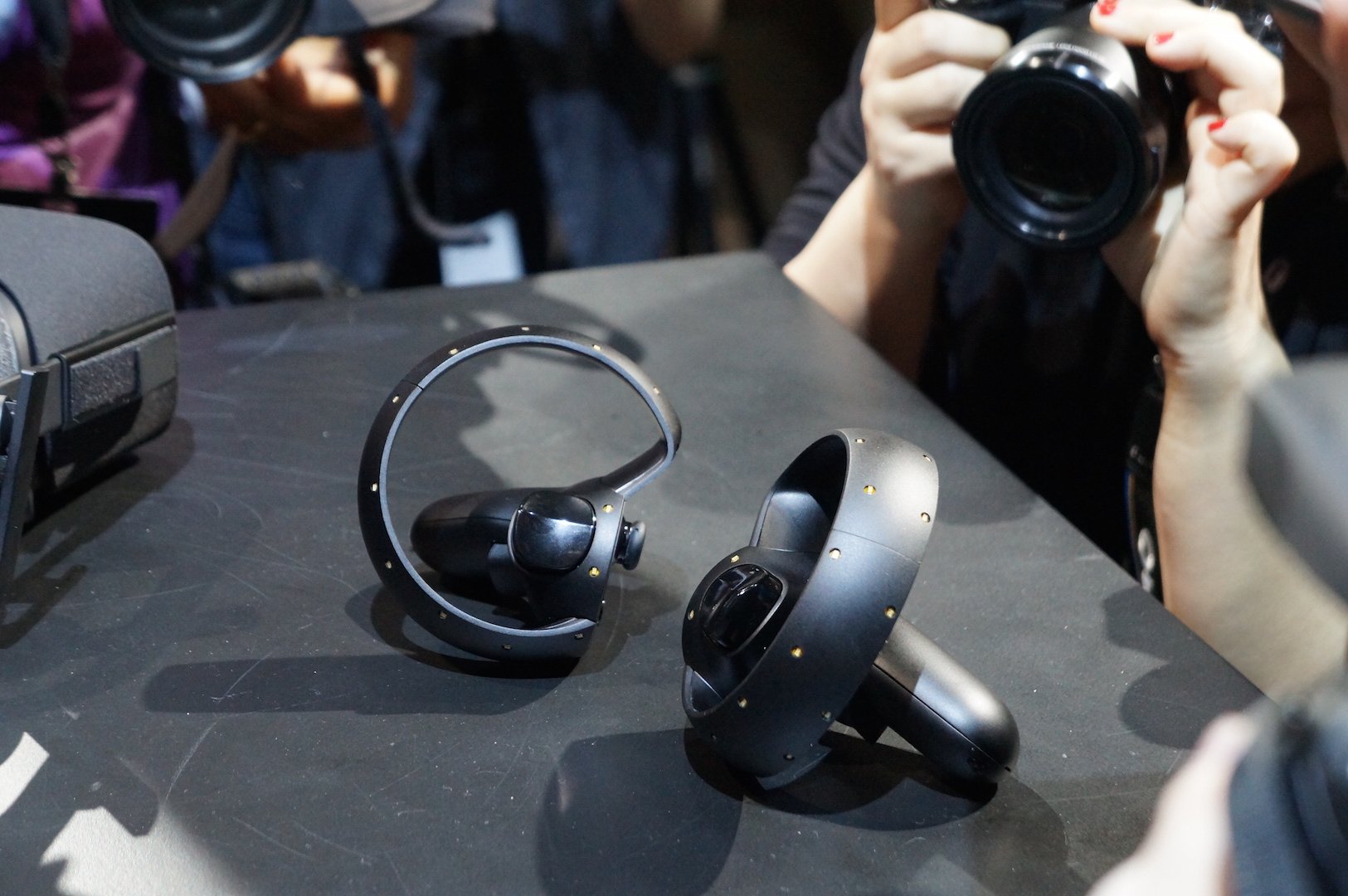Oculus Rift has the games, but not the vision (yet)
Thursday morning’s Oculus press conference was just fine. Well-mannered execs stepped out in front of a living-room zoo, full of mismatched leather chairs and comfy fabric couches, to announce new video games. The proximity to San Francisco meant nobody was jolted by phrases like “fundamental shift,” “paradigm change” and - this is a good one - “it’s something so real, it’s more than real.” The story was about Virtual Reality and games, though it felt like just a narrow snippet for what we’re repeatedly told is going to get mainstream traction.
“We’ve all been dreaming about this for decades, and it’s finally here,” said Oculus CEO Brendan Iribe, standing in front of a massive tyrannosaurus rex. “Imagine if that T-Rex came crashing through this theater,” he said non-threateningly. By donning the Oculus Rift, which is still slated for 2016, you can be in the game, hunted down by that dinosaur. And if you don’t like dinosaurs, we’ve got spaceships too.

All of this is cool for the right audience (for us), but it doesn’t convey a dramatic shift away from the thrills and emotions that course through games today. I don’t want to fault a press conference for being focused, mind you, and Oculus is making smart moves in bringing the Oculus Rift forward as a material platform - a real thing that you can play video games on. This is just the first step toward being on shelves, and early adopters will be keen to play games like EVE Valkyrie, a cutting-edge space combat sim.
The conference was at odds with itself in some ways, though, mentioning the imaginative in the same breath as the unimpressive. The distinction between new games for Oculus, and truly new kinds of games for Oculus, was implied first by Ted Price, CEO of Insomniac Games. Before he announced Edge of Nowhere, a VR game in which you’re alone and stalked by eldritch horrors in a frigid world, he described the concept as being “designed for VR from day one,” and not just a repurposed concept. According to Price, Insomniac is in because it wants to ‘explore new frontiers’ in VR games.

Meanwhile, Microsoft became an inseparable component of the Rift’s journey to reality: an Xbox One controller and its wireless USB receiver will be included with every Oculus headset. The goal is to make sure every game can be designed with that packed-in controller in mind, and I expect Oculus will stick to that plan for longer than Microsoft did with its Kinect. It’s a good move, but a traditional controller for traditional games seems like the anchor dragging down the elevated ideals of Oculus.
That controller is also going to play well with Windows 10 and its ability to stream Xbox One games from your console to your PC. The idea, as briefly illustrated by Xbox head Phil Spencer, is to play your existing games in a “virtual theater” on the Oculus. But it’s not really playing games like Forza Horizon 2 or Sunset Overdrive in VR, is it? It’s being transported to an alternate reality where you have a bigger TV.
A refreshing counterpoint came from Anna Sweet, the head of developer strategy at Oculus. “With the Rift anyone can be a creator,” she said. The game development tools Unity 5 and Unreal Engine 4 will be supported right out of the box, she said, and “Oculus Share,” a portal where developers can share their experimental projects, is getting a revamp. To top it off, Oculus is investing $10 million dollars to get independent games for the Rift. Unfortunately, nothing was shown on that front, giving the press conference a rare instance of not putting your mouth where your money is.
Sign up to the GamesRadar+ Newsletter
Weekly digests, tales from the communities you love, and more

Finally, Oculus founder Palmer Luckey got one-more-thing’d and introduced the Oculus Touch, a forward-looking controller split in two and wrapped around your hands. The two lightweight, mirrored devices feature a traditional analogue stick, two buttons, a trigger and precise movement tracking (not terribly unlike Sony’s Move-enabled Morpheus setup). Luckey described Touch as an attempt to predict new forms of input and games, the kind of games that might actually deliver on the promise of VR. And then he said, “imagine using this to pick up a virtual gun.”
It was fine. I love shooting games, and spaceships and dinosaurs, but I can’t help but feel like Oculus hasn’t yet shown a diverse or original platform for games (never mind all the other uses of VR). You can’t say “This changes everything!” and then talk about a virtual shooting range, can you? If VR is really going to be a game changer, it’ll have to change our games in surprising ways.
Ludwig Kietzmann is a veteran video game journalist and former U.S. Editor-in-Chief for GamesRadar+. Before he held that position, Ludwig worked for sites like Engadget and Joystiq, helping to craft news and feature coverage. Ludwig left journalism behind in 2016 and is now an editorial director at Assembly Media, helping to oversee editorial strategy and media relations for Xbox.



